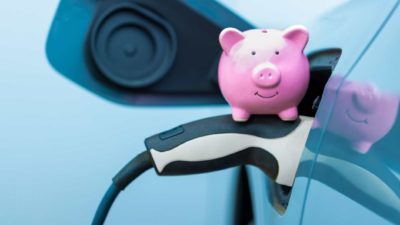This article was originally published on Fool.com. All figures quoted in US dollars unless otherwise stated.
Like some other big tech companies, Amazon.com Inc (NASDAQ: AMZN) has been in the antitrust hot seat for several years now. The company has a huge presence in U.S. e-commerce, controlling roughly 40% of a fast-growing market, and it's also the leading cloud infrastructure provider.
Amazon has no direct rival in e-commerce as no other company has more than single-digit market share in the category, and Amazon has used that dominant position to its advantage, launching businesses like its third-party marketplace and advertising embedded on its product pages.
Both of those deliver high margins. In fact, Amazon's marketplace is so successful that it generates more in sales volume than the company's first-party business (that is, direct sales).
The online retail giant has taken note of the success of individual products in the marketplace, at times launching its own similar private-label products. Former Amazon CEO Jeff Bezos said Amazon policy forbids using third-party data in making first-party product decisions, but he also told a congressional panel that he couldn't guarantee that that policy had never been violated.
Developing house brands is a tried-and-true strategy for brick-and-mortar retailers, and Amazon has followed suit and ramped up its private-label business over the years. It has reached nearly 250,000 private-label products across 45 different owned brands.
However, The Wall Street Journal is now reporting that Amazon is cutting back on that business due to a combination of regulatory pressure and weak sales in some of the product categories.
Bezos, who is now executive chairman, has been a big backer of the private-label business, but it hasn't lived up to his expectations.
Amazon's owned brands, which span categories like batteries, clothes, and baby-care products, account for just 1% of total retail sales, falling well short of a goal Bezos had set of capturing 10% of Amazon's total sales by 2022.
Two steps forward, one step back
While there is no talk of shuttering the private-label business, the Journal said that Amazon is significantly reducing the number of private-label goods on its site, eliminating several weak sellers to focus instead on fast-moving consumer goods like batteries whose sales it can more easily forecast and fulfill.
The regulatory threat may also be a factor. Amazon is the world's second-biggest company by revenue, and it could pass No. 1 Walmart as soon as next year.
Senators like Elizabeth Warren and antitrust regulators have become wary of the company's power and have suggested potential moves like splitting the marketplace from the first-party business or cleaving Amazon Web Services from the e-commerce division. Those antitrust attacks don't help Amazon's reputation, and the company is already dealing with a unionization push at some of its warehouses.
The decision to curtail its private-label business might also reflect the company's realization that its greatest strength in e-commerce is as a facilitator rather than a direct seller. The recent launch of Buy with Prime, allowing online shoppers to shop directly on non-Amazon websites and get Prime delivery for the first time, could juice sales by leveraging the company's logistics network.
What it means for investors
It's easy to forget that Amazon has had its share of failures over its history, including the Fire Phone, the Amazon Webstore (a competitor to Shopify), and Amazon Destinations, its online travel agency. Given the company's overall success, it's unusual for some of its initiatives to flop.
It's too early to call the private-label business a failure, but it clearly hasn't lived up to Bezos's expectations, and Amazon lags behind brick-and-mortar competitors whose owned brands have thrived. Costco, for example, is nearly synonymous with Kirkland, the private-label brand that comprises everything from peanuts to underwear, and Target has 10 of its own billion-dollar brands, each bringing in $1 billion or more in annual revenue, meaning its private-label business is bigger than Amazon's even though its overall revenue is much lower.
Brick-and-mortar chains, for a number of reasons, might have an advantage over Amazon in selling private-label goods.
Costco, for example, has far fewer stock keeping units (SKUs), or individual items for sale, than Amazon, making the private-label business less complicated. The regulatory criticism also seems a good reason for Amazon to pull back in an area that has already sparked ire from government officials.
While this looks like a minor defeat, it's worth remembering that experimentation and failure are core parts of the company's culture, and Amazon doesn't expect every new idea to pan out. Though it's pulling back on private labels, programs like Buy with Prime and Amazon Go seem to be gaining momentum.
That's a reminder that the company still has plenty of levers to pull in order to grow the business, even if private-label products aren't delivering as expected.
This article was originally published on Fool.com. All figures quoted in US dollars unless otherwise stated.









